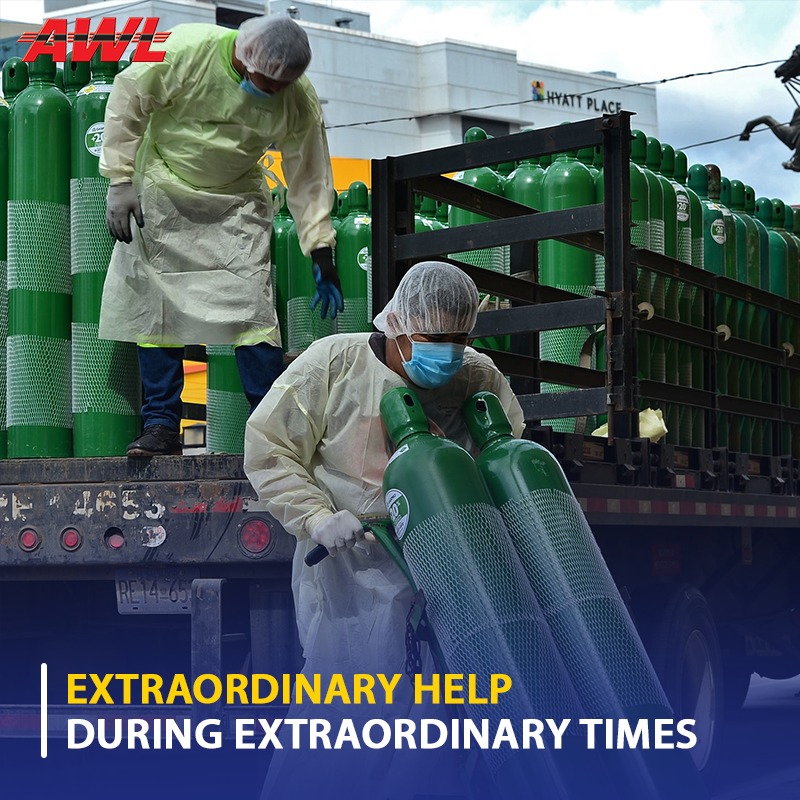

Very few of us would be able to forget the year 2020. With major restrictions placed on national and international travel, transportation of persons and properties was incredibly hit with the onset of COVID-19. People were stranded far from their homes as families were separated by physical distance and the movement of goods and services became a tedious task.
Thus, even though nations were grappling with the pandemic like deer in headlights as humanity reeled under a unique streak of viral infections, communities all over the globe came forward to help those in need. Much like the novelty of the situation, unprecedented measures were taken both at small and large scales to ensure people were safe, secure and contended. Government measures to bring people back to their hometowns, as well as social service chains, joined hands in the welfare of people.
However, as bad as it was to be locked inside our living spaces, the pandemic of 2020 also happened to carry a certain sense of novelty to it. Never before did our or our previous generations hear of something like this and although it was inconvenient for some of us to stay at home all day long, there were incidents of people trying to utilise their unexpected free time for themselves.
Amidst the negativity of the pandemic, there was pleasant news of people having quality time with themselves and their loved ones as they shared the same space for a long while together - making Dalgona coffee could be one such notable incident.
Unfortunately, that could not be told in the case of the second wave. With reduced case numbers and mortality rate tailing at the end of 2020, people grew complacent with their COVID response. Caution was thrown to the wind as safety guidelines were being flouted. Even though a second wave of the virus was not expected by most of us, it was very much on the cards.
The second wave along with the mutated Delta variant of the coronavirus proved deadlier than its first appearance, creating havoc among the global population. Unimaginable and magnified problems of oxygen shortage plagued countries as cases skyrocketed with millions dying. Travel and business once again shut down as people were locked in again, this time with more fear than curiosity. This called for immediate emergency measures to manage the horrific situation.
With people being stranded away from home for the second times, governments utilised shut-down facilities for welfare purposes. Airplanes and trains which were rendered unusable due to travel restrictions were decided to be used to transport people and resources. India particularly had its own repatriation airline service ‘Vande Bharat’ since the first wave specially designed for stranded tourists and citizens.
National and international transportation were used to send or bring back people into their own lands. As acute oxygen crisis and vaccine shortage crippled the pandemic response in various places, nations extended their helping hands by deploying their airways and waterways to transport invaluable oxygen and vaccine materials to countries in dire need of them.
Such became the irony that countries even used their Air Force and Naval contingents, otherwise used for military purposes, to provide resources for life to nations. Thus were weapons of defense and destruction used to alleviate distress and create harmony.
With travel suspended, international airline companies were seen to commission their aeroplanes for transporting medicine and valuable oxygen as a gesture of extending support during the second wave of COVID-19. Boeing, one of the world’s most widespread aerospace and defence companies, had offered it’s 737-700 aircraft to help transport Personal Protective Equipments (abbreviated as PPE kits) from China to the United States in March, 2021. One of its biggest aircraft, Dreamlifter, was also sanctioned to transport critically urgent medications during COVID-19.
Airbus also offered its A350 international travel aircraft to India for airlifting oxygen and essential supplies like ventilation support, oxygen concentrators, breathing machines and PPE kits as part of COVID-19 relief. Hence, international planes were seen to be put to use for a good cause!
It was not only large-scale infrastructure that was engaged in public welfare, local communities and self-help groups enthusiastically came forward to the COVID response. From delivering basic necessities, medicines and groceries to COVID-affected families to taking and paying for helpless COVID patients, non-profit organizations across the planet have been seen to put in their best efforts in containing social discord. Volunteer bodies and support groups were seen flooding the internet with contact details and leads of valuable supplies, connecting the needy with their needs.
International level NGOs like The Red Cross Volunteers and Missionaries of Charity have been seen to ramp up their charity work as a crisis response to the situation. Even national and local-level NGOs like The Rotaract Club and Red Volunteers have been witnessed to extend support amongst the communities.
It was when we lost the ability to physically connect with one another that we understood the importance of physical nearness. The touch of our loved one’s, the gentle nudge of care and the supporting hand is worth trading our lives for. At AWL India, it is our mission to cherish this special feeling of togetherness as we commit ourselves to provide the best logistics and transportation services all over the country. We understand how it feels to be away from the thing you love and we would never want to be the cause for something like that.

